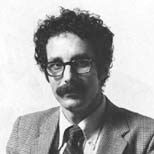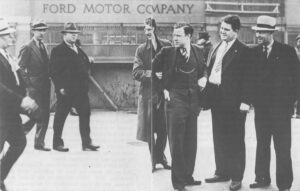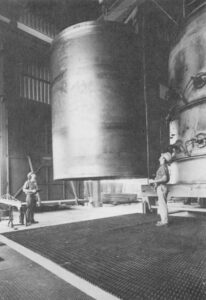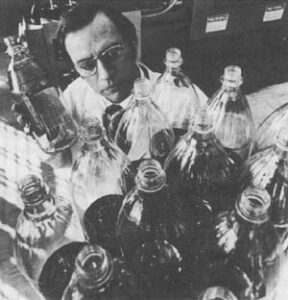Robert Samuelson
- 1982

Fellowship Title:
- Changes in the U.S. Economy since World War II
Fellowship Year:
- 1982

Nothing Fails Like Success
FLINT, Michigan–At 34, Dave Pasco is a big, barrel-chested man with a few streaks of grey in his jet black hair and beard. He lives with his wife and her three children in a comfortable home on Flint’s outskirts. When Pasco was 18–precisely on his birthday–he went to work at one of the eleven General Motors plants that are the bedrock of this city’s economy. The factory lured him from a department store, where hours were long and job security negligible. GM jobs paid better, offered more security and earlier retirement. To Pasco, it was big money and the American dream. It is now a distinctly tattered dream. Except for a few brief recalls, Pasco has been on indefinite layoff since December, 1978. Pasco belongs to the United Auto Workers, and his plight is symbolic of the union’s. The UAW today is a battered, besieged institution. More than 200,000 autoworkers remain on indefinite layoff, and dues-paying membership has dropped from 1.5 million in 1968 to about 1 million now. From championing progressive social legislation, the

The Modern American Corporation
George Hatsopoulos had a vision when he graduated from MIT 27 years ago. He wanted to change the way the world makes electricity. Starting business in the proverbial garage–it was a few miles away from MIT in Belmont–he theorized that, properly heated, some materials could give off electrons (that is, produce electricity) to a nearby receptor. If he could only find the right material, he would dispense with huge steam generating plants. There would be an immense savings in raw energy and a giant leap in economic efficiency. George Hatsopoulos wanted to change the way the world makes electricity. On the road to failure, he built a company whith sales of roughly $250 million. How did he do It? Nearly three decades later, it still hasn’t worked out. But on the road to failure, Hatsopoulos has built a company with sales of roughly $250 million and hopes of reaching $1 billion. Thermo Electron Corp. is large (3,000 employees), has multiple plant operations (about 20), operates internationally, and sells a diversified group of goods and services.

Plastics Gone Soft
In 1945, a research chemist named Earl Tupper created a drinking tumbler from polyethylene plastic. By 1947, he had developed a way to make plastic containers whose parts would form a firm and virtually impenetrable seal to air and moisture. More than three decades later, worldwide sales of Tupperware exceed $800 million annually. Library of Congress Photo Tupper’s success played a small part in one of the great growth industries of postwar America: plastics. Its dazzling expansion and gradual maturing are an apt metaphor for the current state of the American economy. Over the past four decades, plastics production grew more than 70 times–from an estimated 568 million pounds in 1943 to more than 37 billion pounds in 1980. But now the frenzy has abated. Since 1978, production has stagnated. Not only are sales flat, but the pace of technological development and future prospects have diminished considerably from a decade ago. The parallel with the economy could not be more striking. The slowdown is apparent in Wilmington, Delaware at the headquarters of the E.I. duPont

Living on the Fringes
ARMONK, N.Y.–Working for IBM these days is not just a job experience. It’s also a welfare experience. The company not only provides handsome pension and health insurance for its workers and their families, but also does the following: offers health classes and physical examinations, helps organize van pooling to reduce employees’ commuting costs, pays for some of the costs of adopting a child, provides pre-retirement counseling, and supplements government health insurance for its retired workers. But these benefits pale before one other: since the Depression, IBM has not laid off anyone. IBM is exceptional in the breadth of its benefits, but its experience is hardly unique. Private welfare is now pervasive in the United States. Major employers–companies, the federal and local governments–have become mini welfare states, providing vast health, pension and fringe benefits for their workers. IBM Corporate Headquarters (IBM Photo) It is one of the most striking of postwar phenomena. Workers have come to expect generous health and retirement benefits and more job security. Firms have increasingly regarded the amalgam of fringe benefits–the most
